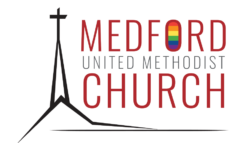
33 God’s riches, wisdom, and knowledge are so deep! They are as mysterious as God’s judgments, and they are as hard to track as God’s paths!
34 Who has known the Lord’s mind?
Or who has been the Lord’s mentor?
35 Or who has given the Lord a gift
and has been paid back by the Lord?
36 All things are from God and through God and for God.
May the glory be to God forever. Amen.
Reflection
Reading scripture is an interesting exercise because frequently the language distracts the reader and clouds the message, leading one to re-read it and say “huh?” It is helpful to read the assigned passage in multiple translations to better understand what the written word is trying to say. Throughout my ministry I have encouraged the use of inclusive language. On my first reading of today’s passage, I found myself distracted by the use of masculine language, so I have done some editing for you. In the CEB translation there were nine “him” or “his” and only one “God” and one “Lord”. A clergy friend has introduced a new phrase to me that I find helpful especially when praying: God of Many Names. You may want to try it sometime when you are speaking or thinking about God.
Another thing I discovered in my reflection of this passage of scripture is that verse 11:34 was originally from the Hebrew Bible/Old Testament Isaiah 40:13, and verse 11:35 originated also with the Hebrew Bible from the book of Job verse 41:11. It is the understanding of scholars that the impact of the book of Romans on Christian belief, behavior, spirituality, and worship has been profound. Since his letter to the Romans has been read and preached on for over 2000 years the great themes of Romans contain Paul’s response to questions about God’s purposes for Israel, humanity in general and for the entire creation. Today’s passage is a prime example.
It is important to understand that Paul and other new congregations used passages from the Hebrew Bible when communicating with the new followers of Jesus. Then they added their own words of wisdom and reflection for their current audience. This is exactly what we are doing when we preach or when we write these daily devotionals. The questions and observations Paul identified are some that every child of God has probably pondered at some time through the ages. Haven’t we each had countless questions and wondered things such as “how did God get so smart?” or “how do we know what God is thinking?” The bottom line for Paul and for every Christian is the understanding in verse 36 that “all things originate from, through and for God.”
by Kathleen Stolz
For Pondering and Prayer
What questions have you had about God?
What questions do you have FOR God?
What do you do about your questions?
These are timeless questions and people will continue to ask them until they realize that
WE are the answer. We are God’s answer to our questions of poverty, injustice,
violence, etc. There is a popular saying, often attributed to St. Teresa of Avila, that
emphasizes the Christian idea that believers are called to be the physical presence of
Christ in the world, acting as his hands and feet to carry out his work of love and
compassion. I believe we are all, every one of us, the answer to almost every question
people have of God. With God’s help we can be the change we want to see in the
world. The reality is this: If we don’t ask God the questions then we will never seek
the answers to those questions.
Ask the questions. Seek the answers. Be the solution.
Prayer: God of Many Names, you have always been with me as guide and comforter even before I knew you. I have trusted you with my questions and with all the major decisions of my life. Sometimes even before I ask for your guidance you are there at my side, whispering in my ear. Thank you for the questions as well as for the answers. I trust that you are with me always, and for that blessing I give you thanks. May the glory be to you forever, O God of Many Names. Amen.



